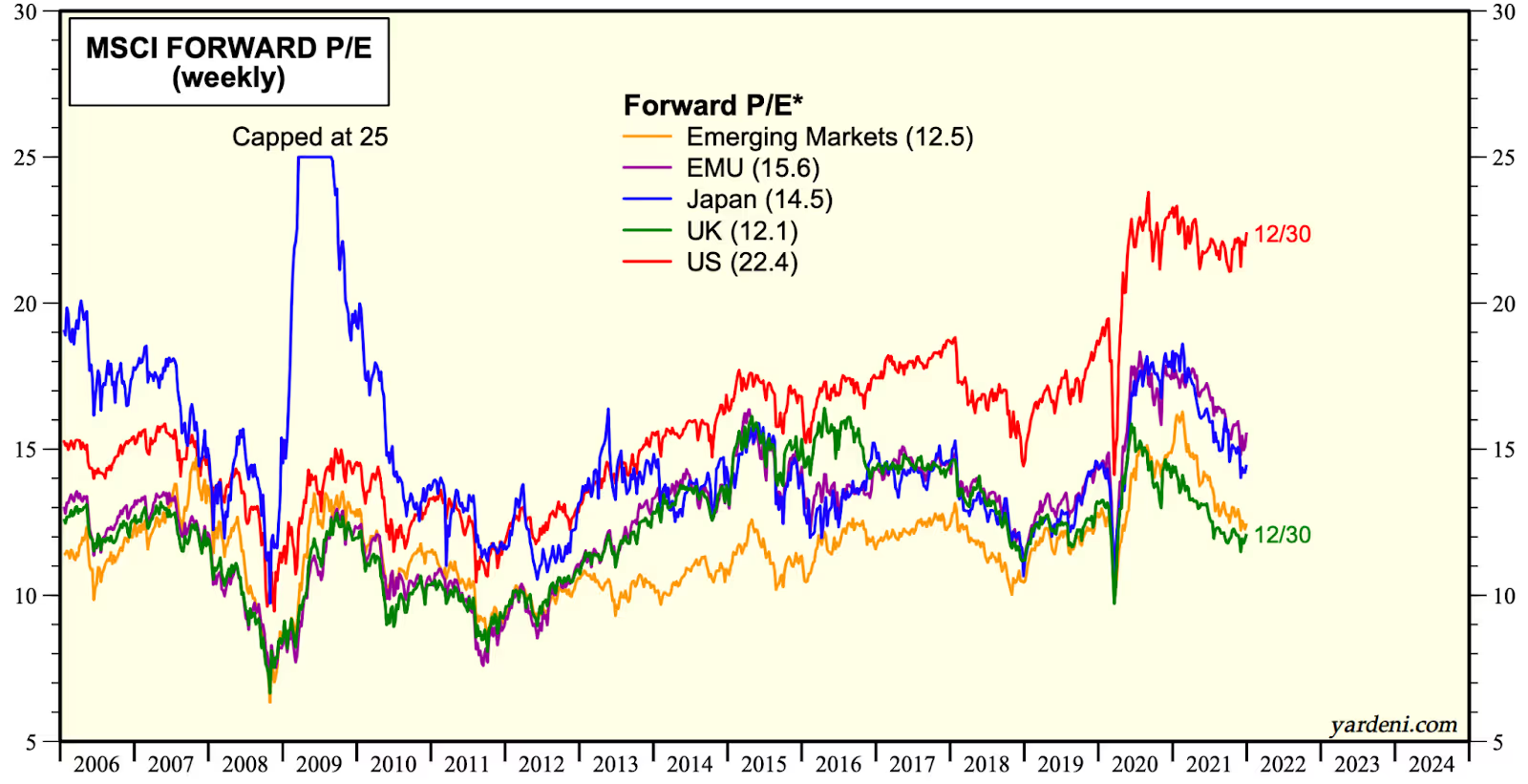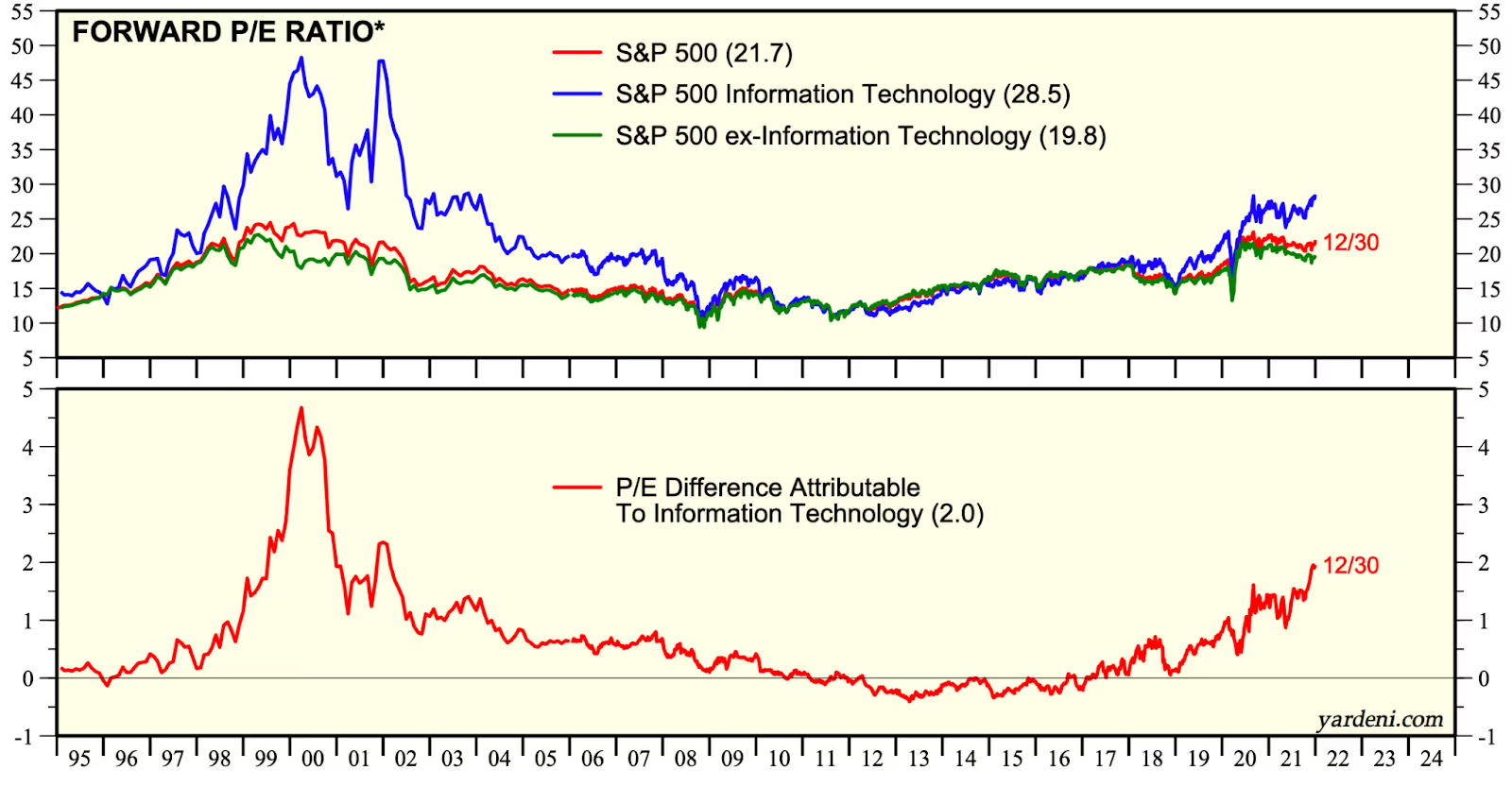December’s stock market antics definitely knew how to keep us all interested.
Omicron spreads and the first rise in UK interest rates in three years meant we had one eye on the turkey and another on the market reaction over the holiday period.
US tech stocks slalomed across the page as investors started to weigh up whether the newest virus variant would herald another round of global lockdowns.
And UK value-hunters got a boost, with stocks in the pummeled travel and financial sectors getting a breather after a rate rise and more positive outlook on virus restrictions.
The US was still very much top of the pile among Freetrade investors’ stock choices. Tech names feature heavily alongside three popular index-tracking ETFs for those looking for broad access to stocks across the pond.
Top ISA buys on Freetrade in December
Before we get stuck in, it’s important to highlight that this is a wrap-up, not a suggestion or recommendation that you buy or sell any of the securities mentioned.
Remember that everyone has their own goals and unique financial circumstances. These, along with your tolerance for investment risk and time horizon, should inform the mix of assets in your portfolio.
Our resource hub for investing in the stock market might be able to help make that blend a bit clearer for you and our guide on how to invest in stocks is a great start for first-time investors. And if you are still unsure of how to pick investments, speak to a qualified financial advisor.
- Tesla (TSLA)
- Vanguard S&P 500 UCITS ETF Dist. (VUSA)
- AMC Entertainment (AMC)
- Vanguard S&P 500 UCITS ETF Acc. (VUAG)
- GameStop (GME)
- ApplE (AAPL)
- Invesco Nasdaq 100 UCITS ETF (EQQQ)
- Nvidia (NVDA)
- Microsoft (MSFT)
- Alphabet (GOOG)
1. Tesla (TSLA)
What a year for Tesla.
Having started 2021 on the backfoot and feeling the unease of the market until June, the company turned on a sixpence and ended up doubling its value by November.
December’s buyers will have been treated to prices lower than that recent peak, as investors started to mull over possible supply chain bottlenecks in the lead up to Q4 production figures.
But seemingly they needn’t have worried. Musk’s firm delivered 308,000 vehicles in the period, around 40,000 higher than analyst expectations, according to FactSet.
That brought its total deliveries for the year to 936,172, up from 499,550 in 2020.
The automaker is still managing to shake off concerns over its high valuation (north of 300x earnings), reflecting the market’s opinion of just how much growth is still ahead of the firm.
But it looks like it will have to put up with some competition.
Ford’s share price smashed a 20 year high last week after reporting plans to double this year’s production of its electric F-150 Lightning truck. The carmaker says it will produce 150,000 EVs by 2023.
And Mercedes-Benz launched its Vision EQXX, which will go 620 miles on a single charge (compared to 200 miles for Tesla’s Model S). In a bid to take on Ford’s electric truck, GM also revealed it’s turning the Chevy Silverado green.
EV fans, start your engines.
2. Vanguard S&P 500 UCITS ETF Dist. (VUSA)
It was a rocky road for the S&P 500 over December.
Omicron unsettled investors but, as it seemed unlikely to have as big a lockdown effect as this time last year, the index hit the high notes heading into the new year.

The focus heading into 2022 seemed to be the path for rates across the Atlantic, and how highly-valued stocks would fare should assets like bonds and cash start to look slightly more attractive.
For now, the market has digested Fed chair J-Pow’s plans for three rises in 2022 to combat inflation. We’ll have to see if that materialises and how calm investors stay about the trajectory.
3. AMC Entertainment (AMC)
On the whole, not a great month for AMC. There were flickers of light midway through December but profit-taking before Christmas and souring sentiment on the back of CEO Adam Aron selling $9.7m worth of stock snuffed those out quickly.
Cinemas across the board were also hit hard by omicron fears - the sector has become a bit of a punchbag investors like to wallop when restriction fears pop up.
But beyond the virus, there’s still a lot for the company to contend with, not least the rise of stay-at-home streaming services. That trend might have boomed during lockdown but it was already in full force before the pandemic and its success hit cinemas hard.
AMC's movie theatre business was barely getting by even before 2020. Since coronavirus struck, the chain has burned through over $100m every quarter as the broader landscape punishes anything reliant on footfall.
4. Vanguard S&P 500 UCITS ETF Acc. (VUAG)
It’s hard to bet against the US and, while further rate rises are on the horizon, that doesn’t mean the market-leading firms on the biggest stock market in the world have suddenly lost all value.
Investors clearly aren’t willing to throw in the towel just yet and stuck with the US theme in December.
For broad US exposure, market watchers favoured the Vanguard ETF’s income-distributing share class last month. can be useful to supplement an income or if you have regular expenses you need help with.
For those eager to rack up dividends over time and reinvest them to take advantage of the power of compounding, an accumulation share class (Acc.) could help.
According to Hartford Funds, an initial £10,000 invested in the S&P 500 over the 60 years from 1960 to 2020 would have grown to $627,161 in price terms, or $3,845,730 with dividends reinvested.
Dividends are incredibly important to the value of total returns.
Past performance is not a reliable indicator of future returns.

5. GameStop (GME)
Just when you thought GameStop couldn’t get any more meme-y, the trade-in chain went and got involved in NFTs.
News reports at the start of this month suggest the firm is set to sign partnerships with a couple of crypto firms, with a view to developing games on blockchain and NFT technology.
GameStop hasn’t actually confirmed the strategy but the rumour was enough to spike the share price last week. The excitement isn’t without merit though.
The retailer is building an online hub for trading NFTs of virtual game collectibles and launched its NFT website last year, so inviting creators to join the platform might seem a logical step.
A note of caution though, jumping from headline to headline isn’t necessarily the best strategy out there. It might even look like desperation or seem like a tenuous link to the newest hot trend. Late last year games maker Ubisoft received backlash over its in-game NFT marketplace for exactly that reason.
More broadly, it’s the latest in a line of efforts designed to jolt life into the GME brand. Away from the short-selling mania there is actually a business to be run and Chairman Ryan Cohen has been tapping executives from companies like Amazon to do just that.
Just coincidentally, he wants GME to become the Amazon of gaming, whether it has the firepower to get that done will be a big focus for investors this year.
6. Apple (AAPL)
Apple became the world’s first company to be valued at $1tn in August 2018. Two years later it topped $2tn and it just started 2022 by crossing the $3tn mark for the first time.
That will be more than a tad galling for investors calling ‘peak iPhone’ for the past decade.
The pandemic has undoubtedly accelerated appetite for anything we, and our employers, need to be able to WFH. But beyond that rush to get everyone in your team a laptop and monitor comes the sticky nature of what you’ll likely replace that with in a few years.
Yes, we’re creatures of habit but contracts are even stickier and firms are often reluctant to change hardware provider at the best of times. It’s expensive, takes time to change and can just be inefficient all-round, even if the current supplier is a tad more expensive.
This could mean the pandemic will be viewed as a real inflection point for firms finally equipping employees for home working, and the providers shipping tech their way.
That thought isn’t lost on Apple’s investors who have continued to buy into what they see as a steadily developing profit centre, despite the price tag (P/E: 30x currently).
7. Invesco Nasdaq 100 UCITS ETF (EQQQ)
Backing the firms kitting us out for work and play over lockdown is one thing but what about life after Covid?
There’s no telling where the next source of growth will come from. The metaverse might be a life changer. It might not. And it’s that uncertainty investors are becoming increasingly wary of.
For many with a view that tech firms are the future, but who think it’s less clear which ones exactly, ETFs like EQQQ could help.
The fund aims to replicate the tech-heavy Nasdaq 100 Index and provide investors with a way to access the broader performance of the sector, rather than taking positions in individual companies.

Whether tech has had its day in the sun will only become clear over time. It may be that new tech firms spring up to take the baton from the likes of Apple and Microsoft.
In that case, an ETF can be a way to invest in that change-over, as fading performers give way to newer names. If not, investors still have access to the biggest firms out there.
8. Nvidia (NVDA)
December wasn’t a great month for the chip-maker.
A big reason for investor concern was a recent report claiming Nvidia could face increased competition from Intel for the most talented employees in the industry.
Intel is putting aside $2.4bn in cash and stock incentives to keep its staff happy and lure talent in the chip space.
That works out to an average of $21,000 per person in pay boosts across Intel's 110,000-person payroll and the market thinks that might prompt a few LinkedIn conversations with Nvidia employees.
On the flipside, Bank of America thinks 2022 could be a whole lot rosier for the firm.
An analyst report from the bank said 50% of Nvidia gamers are using a graphics processing unit (GPU) more than five years old and will need an upgrade if they want to be able to compete with other gamers on a level playing field.
In particular, it said there is a big opportunity for the firm to shift its 7nm Ampere GPUs. BofA suggested Ampere sales could nearly triple - a big boon if the firm can hang onto the high margins it receives on the products.
9. Microsoft (MSFT)
Even tech stalwart Microsoft wasn’t immune to the emotions of traders hanging onto central bankers’ every word last month.
The stock bounced around during December as investors tried to factor in how inflation could take the shine off the tech world and its leaders.
Bringing it all back to basics, the market is concerned price inflation could eat into the firm’s earnings.
That isn’t a sure thing but the market is still not comfortable with high levels of inflation at the moment and isn’t completely convinced rate policies on either side of the Atlantic are the silver bullet the Banks seem to think they are.
Notice that none of this has to do with the actual business though.
2022 will inevitably be filled with talk of rates and inflation but investors should remember to look through the noise and invest in firms with cash on hand, little to no debt and, importantly, as much of their own destiny in their hands as possible.
10. Alphabet (GOOG)
In danger of winning the Oscar for the most obvious observation of the year, Alphabet had an excellent 2021.
After marketing teams pulled ad budgets to tighten belts at the start of the pandemic, they let the purse strings loose last year and Google knew all about it.
In the nine months to the end of September, Alphabet reported revenues of $182bn, a 44% hike from the $126bn it raked in, in 2020.
And that’s a trend the firm’s investors are hoping sticks around.
Global advertising spending was estimated to increase by 22.5% in 2021 to $763bn. If that’s a sign of things to come, Alphabet could benefit.
Already, the shift online has helped boost revenues by a compounded annual rate of 20% over the past 10 years.
The stock might still be above what many investors are willing to pay, on valuation terms, but a P/E of 28 will look fairly reasonable compared to other tech firms.
Quality rarely comes cheap, the question is whether that performance can be maintained for the next decade or if last year’s ad habits are a flash in the pan.
Make your money work a little bit harder with a tax-efficient investing account. First, learn the basics of how stocks and shares ISA works with our guide. Then, if you know that ISAs are right for you, go ahead and open an ISA account or transfer from another provider to start contributing regularly. Download our iOS trading app or if you’re an Android user, download our Android trading app to get started investing.
This should not be read as personal investment advice and individual investors should make their own decisions or seek independent advice. This article has not been prepared in accordance with legal requirements designed to promote the independence of investment research and is considered a marketing communication.When you invest, your capital is at risk. The value of your portfolio can go down as well as up and you may get back less than you invest. Past performance is not a reliable indicator of future results.Eligibility to invest into an ISA and the value of tax savings depends on personal circumstances and all tax rules may change.Freetrade is a trading name of Freetrade Limited, which is a member firm of the London Stock Exchange and is authorised and regulated by the Financial Conduct Authority. Registered in England and Wales (no. 09797821).


.avif)










